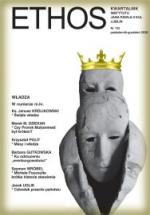 zobacz powiększenie | DOI 10.12887/33-2020-4-132-17 Ryszard Daniel GOLIANEK, Macbeth, The Prophet, Boris Godunov: A Study of Mad Tyranny in 19th-Century Opera Cena brutto: 7,00 PLN za szt. |
|
Aimed against the political establishment of the time, the French Revolution brought about, among its numerous consequences, a crucial breakthrough in the opera repertoire. Mythological motifs were replaced by references to current events or themes drawn from contemporary history. The problem of tension between rulers and the people they ruled started to dominate operatic plots and the then-topical issues began to influence operatic dramaturgy. The breakthrough in question resulted also in a critical depiction of the representatives of power in opera. Among the portrayals of 19th-century rulers, one can distinguish a class of works in musical theatre which address the topic of an unbridled thirst for power leading to ruthless tyranny, violence, and terror. In order to describe and analyze this trend in opera, three pieces were chosen: Giuseppe Verdi’s Macbeth (1847), Giacomo Meyerbeer’s The Prophet (1849), and Modest Mussorgsky’s Boris Godunov (1874); they were all written in the 19th century, but in different European countries: Italy, France, and Russia. Whereas culture and social-political circumstances in these countries differed considerably, the ways in which oppressive rulers were depicted in the discussed operas seem surprisingly similar in both the musical and dramaturgical portrayals of the main (title) characters. In each of the three works, the protagonist’s quest for power triggers extreme actions. The present paper examines reasons for such a conduct, as well as its sources, the scope of the characters’ power, their escalating violence, and its social and psychological effects. The ways of musical characteristics of these issues are also discussed. Keywords: 19th-century opera, tyranny, musical characteristics Contact: Institute of Musicology, Faculty of Art Studies and Musicology, Adam Mickiewicz University, ul. Uniwersytetu Poznańskiego 7, 61-614 Poznań, Poland | |
